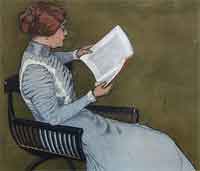Difference Between American and British English

American Vs British English
American and British English is more of a struggle as to what nationality should be credited with regard to the growth and perfection of the English language. While both American and British powers may say that they are the authorities, it is highly debatable to consider which must become the standard.
Historically, the Brits became a bigger power before the Americans and this may have been the reason of their pride for the development of the English language. However, the Americans have also made their impact in the post war days making them a popular, if not, the bigger authority of the English language.
In addition, some notable personalities previously aimed to standardize the language like Noah Webster, the maker of the ever popular Webster’s Dictionary. He tried to lean more on the American style of English but did not really succeed in standardizing the language as many competing authors published their own dictionaries using the British notation. Because of this, the two types of English will sound differently when spoken. Some words will vary greatly as some letters are dropped in one while other letters have been transposed in terms of position.
In terms of possession, American English leans more on the ‘have’ as in the sentences ‘Do you have a smartphone?’ and ‘She doesn’t have any relatives.’ In the British sense, although the former notations still are acceptable, it is more appropriate if it is written this way, ‘Have you got a smartphone?’ and ‘She hasn’t got any relatives.’ As you can see, British English is more on the ‘have got’ notation.
The past participle of the word ‘get’ (a verb) also differs. In American, it is ‘She’s gotten much better at swimming.’ In British, it is ‘She’s got much better at swimming.’
Perhaps the greatest difference between American and British English is on their vocabularies. Some of the most popular terms are ‘hood’ in American while it is known as ‘bonnet’ in English. ‘Truck’ is the preferred term in American English while in British it is called a ‘lorry.’ There are too many terminologies to mention.
In terms of spelling, British English usually has that additional letter ‘u’ like ‘colour’ instead of ‘color ‘ and ‘flavour’ instead of just ‘flavor’. It also uses ‘se’ instead of ‘ze’ like ‘patronise’ instead of ‘patronize’ and ‘recognise’ instead of ‘recognize.’
Summary
1. American English accepts the use of ‘have’ to signify possession while in British English it should be ‘have got.’
2. In vocabulary, American English usually drops the letter ‘u’ in some terms and use the ‘ze’ ending in some words as compared to British English’s usage of ‘ou’ and ‘se’ ending.
- Difference Between Plant Protein and Animal Protein - March 7, 2024
- Difference Between Crohn’s and Colitis - March 7, 2024
- Difference Between Expression and Equation - March 7, 2024
Read More ESL Articles
Search DifferenceBetween.net :
 Email This Post
: If you like this article or our site. Please spread the word. Share it with your friends/family.
Email This Post
: If you like this article or our site. Please spread the word. Share it with your friends/family.


The usage (in British/UK English) of ‘got’ as in ‘She’s got much better at swimming’ is true for more colloquial and spoken English. In written and more formal English one would have said ‘She’s [or rather, She is] much better at swimming’ [with an implied ‘now’], or rather ‘She’s become much better at swimming’.
One of the nastiest conventions in Am-eng is the placement of the full stop [‘period’] always inside the quotation mark as: In British English it should be ‘have got.’ In the queen’s English one would write this as: In British English it should be ‘have got’. (Unless the entire sentence lies within the quotation mark, in which case the full stop would be within the quotation mark: ‘She has become much better at swimming.’ In the latter case someone’s exact sentence is being quoted and stands alone within the quotation marks. The queen’s is known as the ‘logical’ convention, that of Am-eng is the ‘type-setter’s’ convention.) The latter convention you have demonstrated in your tractate above.
[see for example http://en.wikipedia.org/wiki/Full_stop ]
Then there is also the use of the comma before an ‘and’. In the queen’s English the comma before the and is not acceptable, unless the ‘Oxford comma’ exception applies where different lists are linked with an ‘and’.
Another example of a spelling difference is the convention of doubling a consonant after a vowel which is usually done in the queen’s English before -ed and -ing but generally not in Am-eng (although there are exceptions in Am-eng). An example is ‘modeling’ in Am-eng, but ‘modelling’ in the queen’s convention.
American usage is ‘fit’ whereas the queen’s is ‘fitted’. ‘The function was fit to the available data.’ In the queen’s Enlish this is rather: ‘The function was fitted to the available data.’ This is an example almost opposite to the use of ‘got’ vs ‘gotten’ given as an example above.
And ‘most’ rather than ‘almost’ etc.
Perhaps one would simply state that British English has more exact rules governing some fairly commonly used cases and some special exceptions to the rules. While in American English single rules of usage which apply more generally such that they encompass the exception have become the norm. Am-eng is simpler, even if possibly less logical or formal in its conventions, at times. While ignoring the former is an irritation in UK-eng writing, the latter is probably laudable (i.e. fewer rules is better than rules with exceptions).
In the long run, Am-eng conventions will probably displace others, due to both Bill Gates’ influence with the virtual impossibility of removing American English spelling and grammar rules from one’s Windows computer setups [optional comma here] and the the general trend to ‘dumbed down’ intellectual capacity of today’s schooling outcomes.